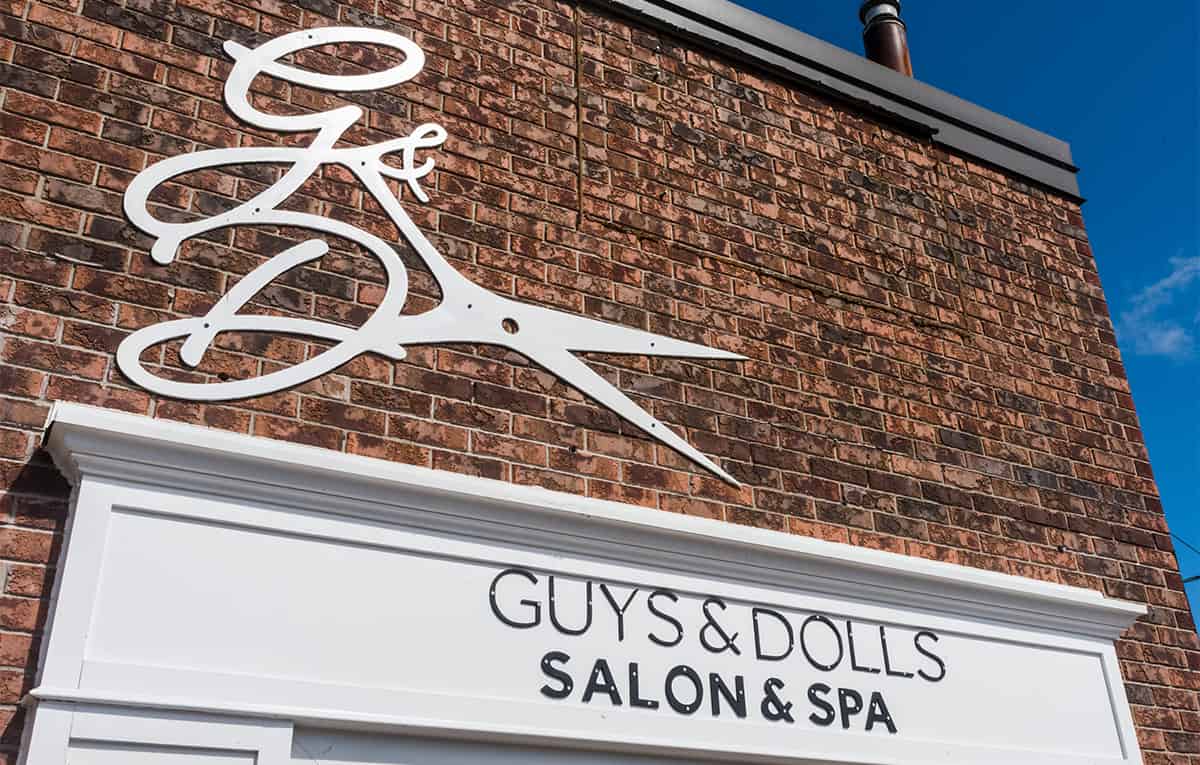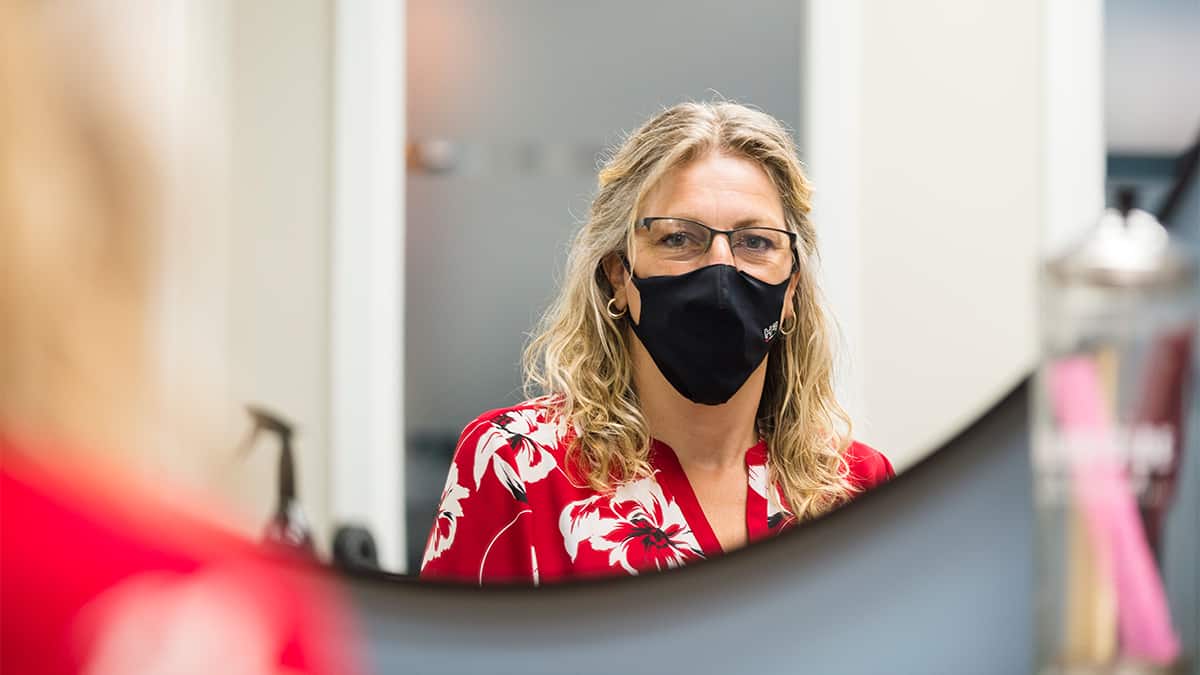The dryer chairs and hair cutting capes have yet to be used at the Guys & Dolls Salon and Spa. Owner Lori Weber notes that the salon has been ordered to close its doors for eight months now.
Her frustration is equally felt among others in the industry. Weber notes that online, hairdressers are feeling like their industry is an afterthought.
“I’m part of an Ontario Hair Stylists website, and we do talk back and forth – there’s a lot of disappointment,” said Weber. “People feel like [others] aren’t recognizing our industry. We are trade, we pay trade prices, but we’re not being recognized as a trade, which is disappointing.”
Barbershop owners such as Kevin Hotradat of Lux Cuts Barber Shop in Elmira are also frustrated with the discrepancy between the rules set out for big box stores versus smaller businesses.
“It’s the hardest thing. I don’t understand why they won’t let us be open when we’re trained to do these things and be sanitized,” said Hotradat. “You can have 1,000 people in Costco but we can’t have three people in our barber shop. It’s ridiculous.”
It’s not just industry professionals feeling disappointed, as Premier Doug Ford said at a press conference last week he’s been getting pressure from family members to reopen the beauty industry, noting that he’s been addressing the issue with chief medical officer of health Dr. David Williams
“I think everyone’s pushing him. When it comes to the hairdressers, folks, hang in there, we’re going to get there as soon as possible,” said Ford. “And when you talk about the nail salons, I have five women in my house that are onto me and lobbying me hard [for] these manicures and pedicures and everything else they get done.”
For an industry that has had a strong focus on sanitization and disinfection before the pandemic, professionals are finding it difficult to understand why they are being held in the same category as theme parks. Health Canada’s data has shown since the beginning of the health crisis until March 2021, less than 0.2 per cent of known outbreaks took place in personal service settings like barbershops and hair salons.
“I can’t believe we are opening with the theme parks,” said Weber.
[Before the pandemic] we were probably one of the only industries that diligently sanitized people in and out of our space. Every time they sat in our chair, we sanitized, every time they left. We sanitized the chair, we sanitized the capes – we were on top of that thoroughly.”
“From the beginning we’ve been sanitary. Everybody’s had their PPE, spraying down the chair and tools after each use – we keep up with everything,” said Hotradat. “ We feel like we’ve been targeted to just be shut down.
One can see the need for services hairdressers and barbers provide just by looking at the abundance of hair on people’s heads, but Weber explains that the hair is only a small part of being a hairdresser.
“It’s not just cutting hair, there’s more to it,” said Weber. “We feel like we mentally help people, like we give them support in their lives as well as a new look. And we feel that that’s being missed.”
The impact these closures have on the industry will still be felt even after the economy has fully reopened. With barbershops and salons still facing operating costs but no revenue, many operators have decided to shutter their businesses for good. Some have even resorted to providing illegal haircuts to cover their bills.
“There’s some people just getting out of it – retiring – because they’re feeling like they can’t outride the wave. And that’s really sad to me,” said Weber. “People are going to be looking for hairdressers because there’s going to be a shortage.”
“I know [of] a couple guys that have shops and they’ve been doing haircuts out of their garage, out of their basements, just to try to make ends meet and pay bills,” said Hotradat.
As the province inches closer to phase two of its reopening plan, hairdressers and barbers are looking forward to not only the renewed revenue, but the ability to reconnect with their customers.
“That’s probably the hardest is not being able to care for your people that you’ve cared for for years,” said Weber. “You have a relationship with them.”










